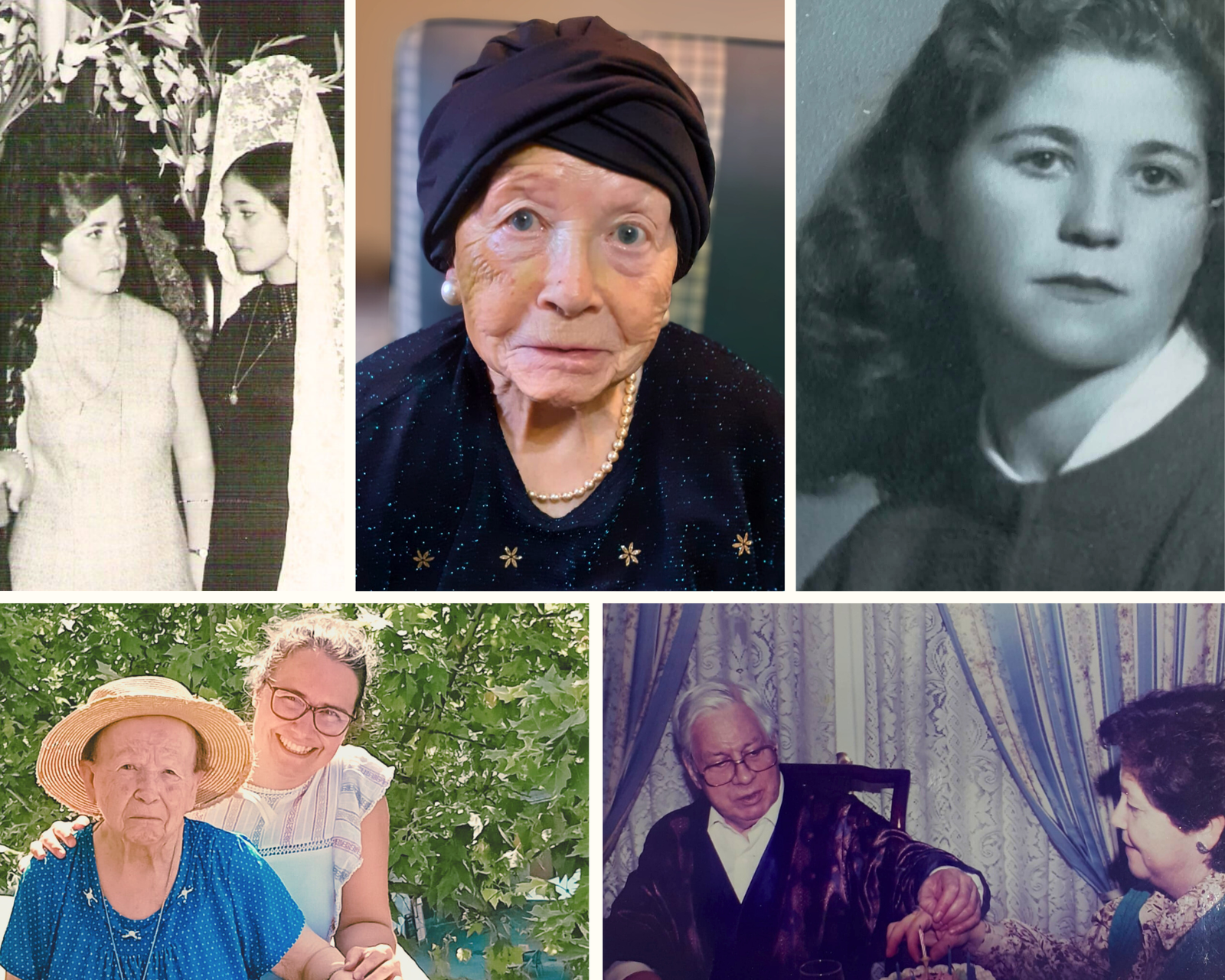
Gospel according to Saint Luke 17:5-10
The apostles said to the Lord, “Increase our faith.” The Lord replied, “If you have faith the size of a mustard seed, you would say to this mulberry tree, ‘Be uprooted and planted in the sea,’ and it would obey you.
“Who among you would say to your servant who has just come in from plowing or tending sheep in the field, ‘Come here immediately and take your place at table’? Would he not rather say to him, ‘Prepare something for me to eat. Put on your apron and wait on me while I eat and drink. You may eat and drink when I am finished’? Is he grateful to that servant because he did what was commanded? So should it be with you. When you have done all you have been commanded, say, ‘We are unprofitable servants; we have done what we were obliged to do.'”
Faith and action: complete feedback
Luis CASASUS President of the Idente Missionaries
Rome, October 05, 2025 | XXVII Sunday in Ordinary Time
Heb 1: 2-3; 2,2-4; 2Tim 1: 6-8.13-14; Lk 17: 5-10
Today, Christ speaks to us about faith, or more precisely, about our lack of faith. I must confess that sometimes I identify with the little bird in this story:
Once upon a time, there was a sparrow who lived his life in a state of constant anxiety and uncertainty. He was still in the egg and tormented himself: Will I ever be able to break this hard shell? Won’t I fall out of the nest? Will my parents feed me?
He dispelled these fears, but others assailed him as he trembled on the branch, about to take his first flight: Will my wings hold me up? Will I crash to the ground? Who will bring me back up here? Of course, he learned to fly, but then he began to wonder: Will I find a mate? Will I be able to build a nest? This also happened, but the sparrow was distressed: Will the eggs be protected? Will I be able to feed my little ones? Could lightning strike the tree and burn my whole family to a crisp? What if a hawk comes and devours my children? When the little ones proved to be beautiful, healthy, and lively and began to flutter here and there, the sparrow complained: Will they find enough food? Will they escape the cat and other predators?
Then, one day, the Master stopped under the tree. He pointed to the sparrow and said to his disciples: Look at the birds of the sky: they do not sow, reap, or gather into barns… and yet your Father in heaven feeds them!
Of course, that little story has the same conclusion as today’s Gospel: faith is not an assent to a set of ideas or convictions, but a succession of steps. That is why Jesus ends by talking about service, which is doing with full dedication what I have to do RIGHT NOW, even if it seems insignificant, even useless at times.
But, as happened to the sparrow in that legend, there is a plan for each of us. What is more, we are made in such a way that if we are faithful and put our heart, mind, and intention into this moment, dedicating it to the one who has given it to us, we will receive an unexpected response. Like the sparrow, we will be embarrassed and surprised to realize that Christ is using us as a testimony of his presence… This is the interpretation we can give to one of Fernando Rielo’s Proverbs: Those who walk wisely discover heaven with every step.
But we do not have the courage or do not consider it necessary or effective to give up certain habits that prevent us from fulfilling the Father’s will. It is not simply a matter of “being brave enough to take demanding action…”
Self-denial in matters of character or in activities that seduce me is indispensable for faith to grow, as the disciples themselves intuit in today’s Gospel that it is necessary: Lord, increase our faith.
—ooOoo—
The First Reading, from Habakkuk, teaches us the same lesson. This prophet lives in a time of great social injustice and violence. He sees how the wicked prosper while the righteous suffer, so he expresses his anguish and frustration at God’s apparent silence. His is an honest prayer, representing human pain in the face of evil. Habakkuk does not doubt God, but he demands an answer: why does God allow so much injustice? It is not a lack of faith, but a complaint that springs from deep faith.
It is a universal question: If God is good, why does he allow so much suffering and injustice?Habakkuk becomes the voice of all those who have ever felt abandoned or ignored by God in the midst of pain, uncertainty, or pessimism. On this occasion, the prophet is scandalized that God is going to use the Babylonians, an even more cruel people, to punish Judah.
God’s response is a mission entrusted to Habakkuk (exactly the same as what happens to you and me 28 centuries later…):
The Lord commands Habakkuk to write down the vision, which means that His promise is certain and must be preserved. However, God’s justice does not operate in human time. The solution always seems slow to us, but it is sure and infallible. We always need more patience and a long-term perspective.
God assures us that the proud will not prosper. Although it may seem that the arrogant and violent (such as the Babylonians) triumph, their success is temporary and their own pride will be their downfall.
But the righteous, because of their faith, will live, concludes the First Reading. “To live” does not necessarily mean to survive physically, for many righteous people are destroyed, but to persevere, to stand firm, and to find true life. So, the reward for an act of faith is not just any triumph, but an intimacy, a deeper union with the Divine Persons. The key to enduring times of injustice is not to understand God’s plans, but to trust in them. Faithfulness or faith (the Hebrew word implies both) is the anchor that keeps the righteous standing while they wait for divine justice.
Paul’s second letter to Timothy is also written in a context of persecution and suffering. Paul, imprisoned and aware of his nearness to death, encourages his disciple Timothy to remain steadfast in the faith and in his mission. He tells him not to let fear extinguish his vocation. The “gift of God” refers to his call to ministry. And St. Paul also does not forget to mention that the Holy Spirit dwells in us, that is, that faith is lived in community, of course, in many different ways, but we can always learn from the faith of our neighbor and always, through grace, we have the opportunity to be an example of how faith acts in our weakness.
Just consider one statistic that shows how real change requires community: globally, one in three people who finish their time in prison reoffend. On the contrary, those who manage to integrate into a work, family, or religious community almost always overcome their past, which in many cases originated in some form of loneliness or, worse still, in an environment that almost inevitably leads to crime, violence, or some form of degradation.
Without necessarily talking about relating to those who break the law, we are all called to live our lives in a way that helps to increase the faith and sensitivity of our fellow human beings, as the responsorial psalm exhorts us today: May you hear his voice today! Do not harden your hearts as at Meribah, as on that day at Massah in the desert, when your fathers tested me, when they tempted me, even though they had seen my works.
Today, when so many describe anxiety as a disease characteristic of our time, we must recognize that you and I can be victims of situations that lead us to anxious and pessimistic behavior and, consequently, insensitive to the reality and hopes of our neighbors. Who has not thought that the hatred, resentment, and prejudices that permeate relations between communities or peoples are inevitable realities? Who has not thought that certain family conflicts are irreconcilable? Who, at least once, has not thought that the roots of enmity between people are so deep that they cannot be uprooted? Who has not been overwhelmed by having to finish a job in too short a time?
Too many situations contribute to the deterioration of that state of contemplation, which is perhaps better called continuous prayer and which allows us to embrace faith.
What are the symptoms of losing faith? It rarely manifests itself as a categorical refusal, such as when someone officially renounces their membership in the Catholic Church. Such cases are more likely to be the result of a scandal that has damaged a person’s sensibilities.
But faith is lost when we stop, when we feel that no further effort or new effort is needed. Faith is lost when we sit on the side of the road, as when a nun said to me: I have given many years, all my time and money to my institution, and now I can devote myself to what I have always loved, what nourishes my culture and my personal and professional fulfillment. An apparently justified form of selfishness… where few will see the action of the devil, amplifying the ordinary consequences of natural and real fatigue.
—ooOoo—
The last part of Jesus’ words seems to contrast with what the Gospel teaches at another point, when he says: Blessed is that slave whom his master finds awake when he comes. Yes, I tell you, he will put on his work clothes, have them sit down at the table, and come and serve them himself (Lk 12:37). Now he says that the servant, after a hard day’s work, must set the table so that his master can eat comfortably.
Christ is not talking about the obligations of slaves at that time; rather, he is pointing out our lack of faith: our instinct for happiness pushes us to demand some form of reward from God for what we consider our merit, our self-sacrifice. But St. Paul already tells us: What do you have that you did not receive? If you received it, why do you boast as if you did not receive it? (1 Cor 4:7).
Deep down, pride leads us to demand (right now!) a response to our efforts, even if it is only the admiration—always fleeting and changeable—of others. But God’s plan is different: My reward is more and more trust in you, more and more difficult missions. Sometimes you don’t believe in me, but I increase your faith by making you capable of responding to my requests.
Let us welcome today the light that allows us to see that authentic reward of Providence.
_______________________________
In the Sacred Hearts of Jesus, Mary and Joseph,
Luis CASASUS
President












